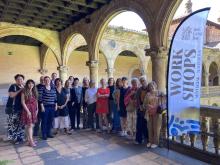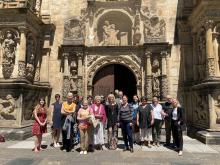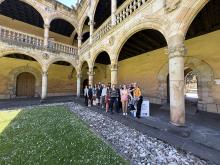Coordinators: Raquel Medina Plana (Universidad Complutense de Madrid), Nancy Anne Konvalinka (UNED)
Description of the meeting
In 2025, 20 years will have passed since the UK lifted donor anonymity in its 2005 HFE Act. Consequently, the people born through donation under that Act are now reaching adulthood, therefore gaining access to comprehensive information about their donors. Meanwhile, other European countries like Spain maintain anonymity; neighbouring countries like France only recently (2022) legislated in favor of banning anonymity. What underlying currents do these legislative processes embody? How does social debate, or its absence, intersect with them? What role have the discourses and claims of children born through assisted reproduction played in these processes? What are the consequences for the conceptions of family, kinship, and filiation?
Biopolitics teach us that reproductive practices sit at the very core of power: legislative, economic, ethical, and moral instruments shape and affect these practices and the associated ideas and representations on family and kinship. Assisted Reproductive Techniques (ARTs), especially those involving third-party intervention, offer a privileged perspective on these processes, yet a transdisciplinary approach is required to fully account for the roles of the various actors involved in their development and implementation.
Among these actors, individuals born through ARTs have undoubtedly received the least attention, both in social and political discourse and in scientific analysis. They constitute an emerging collective actively advocating for their rights, often in conflict with the interests of the “reproductive industry.” We aim to examine their discourses, underlying representations of family, genetics, and kinship, and how these are being translated by the law. Cultural, political, social, economic, technological, and ideological influences on legislative conceptions and public policies related to these issues will be addressed, scrutinizing the disparity between the social importance and acceptance of ARTs and the limited public debate on the topic across different countries. Interdisciplinary socio-legal visions are best suited to account for how these emerging interests are being translated legislatively and how representations of family and kinship are being reconfigured to accommodate them.
Our experience in Oñati
When our workshop proposal was accepted, the real job of organization began. Our hope was to gather together an international team of experts in the social sciences and law to provide as varied a range of perspectives as possible. The attractiveness of Oñati, as a workshop destination, helped us in this and specialists from the Belgium, Russia, Spain, Sweden, Switzerland, the United Kingdom, and the United States joined the discussion.
Everything to do with the organization by the IISL was handled superbly by Malen Gordoa and her team. The registration process was clear and easy, as was reserving rooms at the Residences. Because the workshops already have a general structure that has been proven to work well, it was very easy to fit what we wanted to do into that structure. Communication was very fluid and Ms. Gordoa provided flexibility when needed, as well as appropriate solutions to any problems that came up.
Because all the practical support was provided by the IISJ, we were able to concentrate on the content of the workshop and the communications with the different specialists. The organization of the practical support was thorough and efficient, including the bus transportation to and from Oñati, the resources in the conference room, the lunches and coffee breaks, the residences, and the information on publication options.
From the beginning to the end, the IISL has made the process of organizing the workshop simple, easy, and, I might even say, enjoyable. It is our sincere hope to attend or organize another workshop in this incomparable setting, conducive to thoughtful, productive discussion between specialists in both social sciences and law, in the future.



